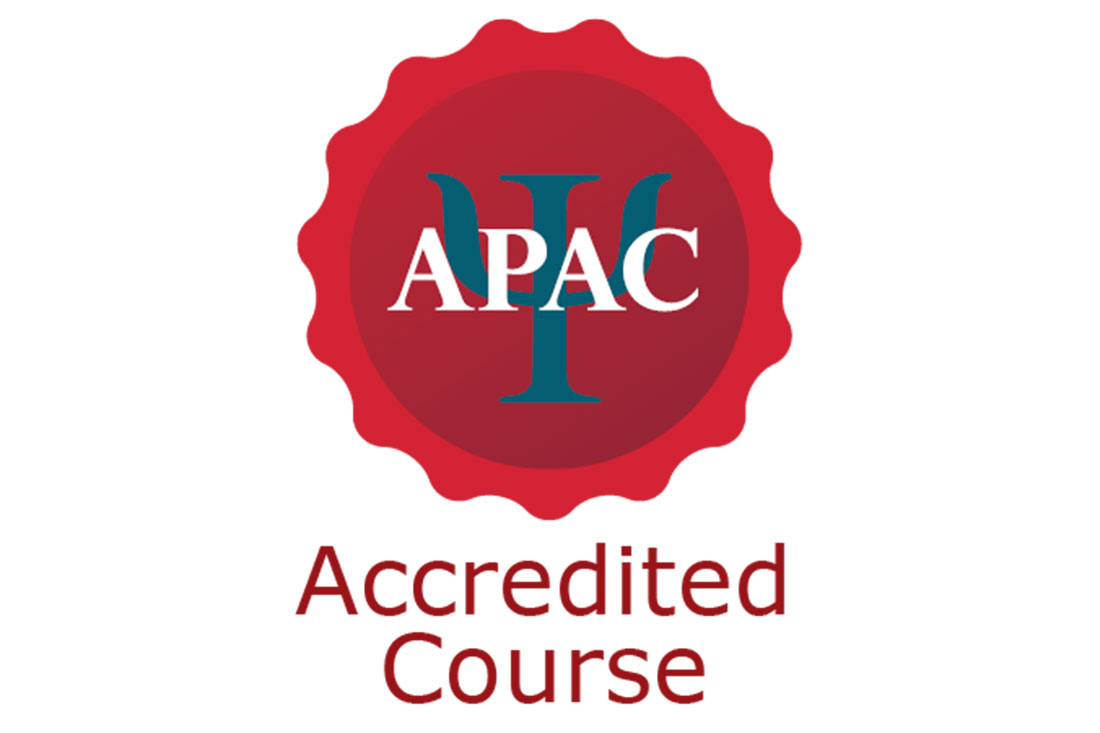Entry requirements
You must have:
- A recognised psychology honours or 4-year bachelor degree (or higher) in psychology completed within the last 10 years (2015 or later)*; and
- A minimum fourth year psychology units grade point average (GPA) of 5.50 (on QUT's 7 point scale) in your psychology bachelor degree; and
Your degree must be accredited by the Australian Psychology Accreditation Council (APAC) as a 4-year training (or equivalent) program. For example, QUT's Bachelor of Behavioural Science (Honours Psychology) degree.
If you have an overseas qualifications you must provide certification with your application from the Australian Psychological Society (APS) stating your degree is equivalent to an APAC-approved, 4-year training in psychology. Please ensure you lodge your certification request with APS as early as possible, as APS processing times can exceed three months.
Additional entry requirements
You must:
- Ask two referees to provide us with confidential reports via the Psychology Reference System. You will also need to ensure that you have shared these reports with QUT in the Psychology Reference System. Please note: This system is the same across many Australian universities. User charges apply. For further information please contact the Psychology Reference System provider.
- Provide a completed questionnaire (PDF file, 184 KB).
- Provide your current CV.
- Attend an in-person interview, if shortlisted.
Overseas qualifications
We will consider equivalent overseas qualifications for admissions purposes. If you have tertiary qualifications from countries where English is not the standard language of instruction, you must provide evidence of English language proficiency.
English language proficiency
We require students to demonstrate they can speak, write, read and comprehend academic English to a specified standard.
Our English proficiency requirements for this course are:
- IELTS (Academic): 7.0 or better overall with no subscore below 7.0
- PTE (Academic): 65 or better overall with no subscore below 65
- TOEFL (iBT): 98 or better overall with a writing subscore of 27 or better, listening and reading subscore of 24 or better, and speaking subscore of 23 or better
- Cambridge English Score: 185 or better overall with no subscore below 185
The test must have been completed within 2 years prior to the proposed course start month.
Application dates
- 1 July: applications open
- 30 September: final date to apply and provide all required supporting documentation. Applications or supporting documentation received after this date will not be considered.
Selection process
Applicants are shortlisted in priority order based on their GPA, referee reports and questionnaire. Shortlisted applicants will be contacted in late October to attend an in-person interview at the Kelvin Grove campus in early November to assess their interpersonal skills in a clinical context. If required, a second round of in-person interviews will be conducted in late November.
Admission is based on GPA, interview, questionnaire, and referee reports. Mid-November is when first round of offers will be issued to selected interviewed applicants along with notifications to unsuccessful applicants. If you were interviewed or did not receive an outcome in mid-November, your application is being held for consideration in late November/early December should places become available.
Applicants expecting to complete their studies by December
You must provide your academic record for all studies attempted up until semester 1 this year by 30 September. If your application is successful you will receive a conditional offer that will stipulate when your final results and course completion must be provided to confirm your place.
If you have summer/semester 3 (or equivalent) studies you will need to apply for entry next July. for the intake year after you complete your studies.
*Qualifications completed more than 10 years ago
If you completed your degree with the required GPA more than 10 years ago, you must either:
- Successfully complete refresher training (see below); or
- Provide evidence of current registration as a psychologist with the Psychology Board of Australia.
Refresher training
You are recommended undertake the following units at QUT:
- Assessment and diagnosis: PYB309 Individual differences and assessment plus PYB306 Psychopathology
- Psychological Interventions: PYH402 Counselling Psychology
- Psychopathology: PYB306 Psychopathology
- Ethics: PYH407 Research and professional development seminar
This training can be completed as single units of study. To fulfill Psychology Board requirements, refresher training needs to have been completed within the last ten 10 years (2015 or later).



